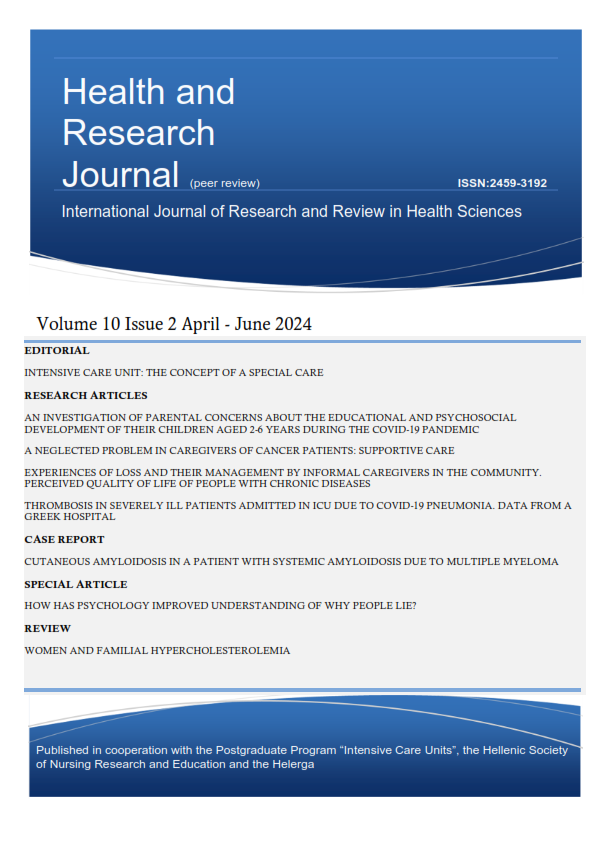An investigation of parental concerns about the educational and psychosocial development of their children aged 2-6 years during the COVID-19 pandemic

Abstract
Background: Fear of COVID-19 is anticipated to have the potential to adversely affect parents’ mental health, which may hinder their ability to make decisions and provide adequate emotional support to their children. We aimed to identify the concerns of Turkish parents about themselves and their 2-6-year-old children’s educational and psychosocial development during the COVID-19 pandemic.
Material and Method: We included a total of 204 parents in this cross-sectional study. As data collection tools, we developed and used a “Demographic Information Form” and the “Parental Concern Questionnaire-Pandemic.” Frequencies, percentages, and Chi-square test were utilized to analyze the data gathered online.
Results: The findings revealed that most parents were concerned about contracting COVID-19, as well as their family members, and the uncertainty of the future. Besides, we concluded that parental concerns about their children’s education and anxiety differed by the child’s age. In addition, we determined that parents’ concerns about their children’s internet use, gaming, reduced appetite, reluctance to attend school, and future during the pandemic varied by the child’s gender. Moreover, such concerns about internet use during the pandemic varied by the mother’s age. Finally, we found that parents’ concerns about losing their temper easily with their children during the pandemic differed by the father’s age.
Conclusions: During the pandemic, parents had great concerns about not being able to spare enough time for themselves, the unknown future, being away from their social environments, testing positive for COVID-19, failing to find a solution to any unexpected situation, and experiencing uncontrollable events.
Article Details
- How to Cite
-
Bayhan, P., Öz, S., & Demir, E. (2024). An investigation of parental concerns about the educational and psychosocial development of their children aged 2-6 years during the COVID-19 pandemic. Health & Research Journal, 10(2), 65–79. https://doi.org/10.12681/healthresj.31826
- Section
- Original Articles
Copyright notice:
Authors retain copyright of their work and grant the Health and Research Journal the right of first publication.
License:
Articles are published under the Creative Commons Attribution 4.0 International License (CC BY 4.0). This license permits use, sharing, adaptation, distribution, and reproduction in any medium or format, including for commercial purposes, provided that appropriate credit is given to the author(s) and the original publication in this journal, a link to the license is provided, and any changes are indicated.
Attribution requirement:
Any reuse must include the article citation and DOI (where available), and indicate if changes were made.


